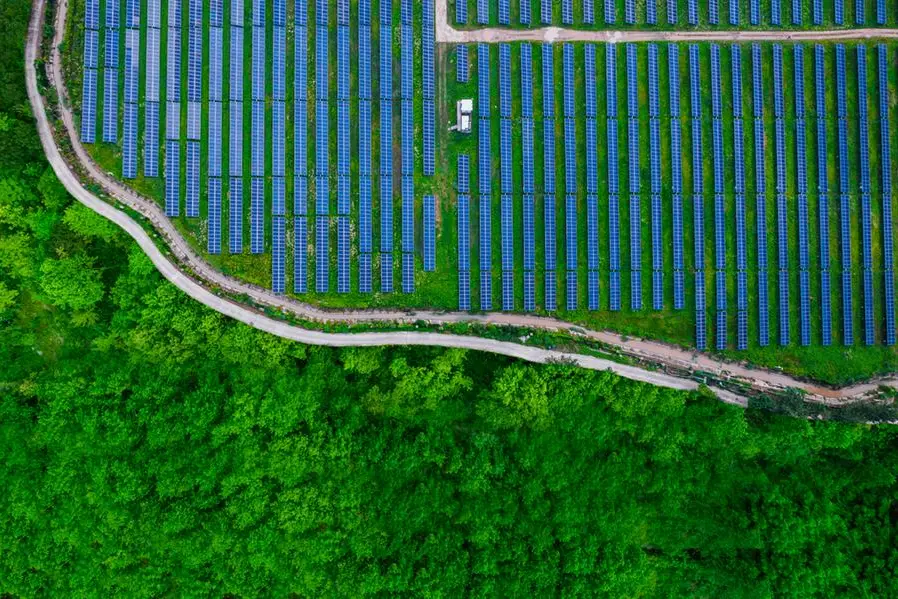PHOTO
In recent years, the global focus on sustainability has catalysed the adoption of innovative technologies across industries to mitigate environmental impacts. Among these technologies, biochar has emerged as a promising solution in the agricultural sector. Biochar, a form of charcoal produced from organic materials, offers significant potential for enhancing soil health, increasing crop yields, and sequestering carbon dioxide from the atmosphere. Oman, renowned for its commitment to sustainable development, has embraced biochar technology as a cornerstone of its efforts to advance sustainable agricultural practices and address climate change challenges.
Ahmed Rashid Salim al Rabaiai, a PhD candidate at Sultan Qaboos University, has been instrumental in advocating for biochar integration in Omani agriculture. His research efforts have focused on exploring the vast benefits of biochar in addressing degraded soils and rehabilitating saline lands in Oman. Working closely with his supervisors, Dr Daniel Menezes Blackburn and Dr Said al Ismaily, Ahmed’s vision for biochar in agriculture revolves around enhancing soil properties to elevate fertility and productivity in Omani agricultural landscapes.
Reflecting on his motivations, Al Rabaiai shares, “My recognition of biochar’s immense potential in ameliorating degraded lands and enhancing Omani soil fertility sparked my passion for sustainable waste management solutions through biochar production.” He further adds, “Biochar represents a promising avenue for sustainable agriculture in Oman, offering a holistic approach to soil enhancement and climate change mitigation.”
Setting biochar apart from traditional soil amendments are its unique attributes that offer a plethora of benefits for agricultural sustainability. With its superior surface area for enhanced water and nutrient retention, increased porosity promoting optimal aeration and root growth, and long-term stability for sustained soil health and fertility, biochar emerges as a transformative solution within the realm of sustainable agriculture. Particularly in arid regions such as Oman, biochar’s exceptional water retention capabilities play a pivotal role in reducing irrigation requirements, conserving vital water resources, and facilitating plant development.
Oman’s commitment to promoting biochar technology is exemplified through substantial investments in research, development initiatives, pilot projects, and educational programs aimed at enlightening farmers on the advantages of biochar incorporation in agricultural systems. By fostering collaborations with global organisations, research institutions, and technology providers, Oman endeavours to optimise biochar utilisation, cater to its unique agricultural landscape, and maximise benefits for farmers and the environment.
Al Rabaiai underscores the pivotal role of biochar in carbon sequestration and its impact on climate change mitigation. He emphasises, “Biochar’s ability to convert organic waste into stable carbon compounds stored within the soil aids in carbon offsetting efforts, curbing greenhouse gas emissions, and reducing atmospheric carbon concentrations.”
Ahmed envisions a future where biochar plays a central role in climate change mitigation strategies, offering a sustainable solution to balance agricultural productivity and environmental stewardship.
Through strategic alliances with companies like NTZ Solutions, Oman ensures the quality and efficacy of tailored biochar products for local markets. NTZ Solutions, an industry pioneer in Oman’s biochar sector, specialises in customised biochar formulations curated to align with Oman’s Net Zero targets and sustainability goals across varied sectors. Their unwavering commitment to producing high-quality biochar underscores the significance of biochar in driving sustainable agriculture practices in Oman.
The future outlook for biochar in Oman and the broader region is promising, underpinned by escalating awareness of environmental sustainability imperatives and the pressing need for carbon sequestration strategies. Biochar is poised to revolutionise agricultural practices, carve a path towards sustainability, and shape a greener, more resilient future.
Al Rabaiai summarises, “Biochar offers a pathway to supporting food security, economic development, and environmental stewardship in Oman’s agricultural sector. Its versatility and effectiveness make it a valuable addition to sustainable agricultural practices, aligning with Oman’s vision for a greener and more resilient future.”
Oman’s biochar revolution signifies a paradigm shift towards sustainable agricultural practices, aligning with global sustainability objectives and environmental stewardship. Researchers like Ahmed Al Rabaiai, along with governmental and industrial collaborations, are propelling biochar into the spotlight as a catalyst for transforming agricultural landscapes, fostering sustainability, and combating climate change challenges.
2022 © All right reserved for Oman Establishment for Press, Publication and Advertising (OEPPA) Provided by SyndiGate Media Inc. (Syndigate.info).





















